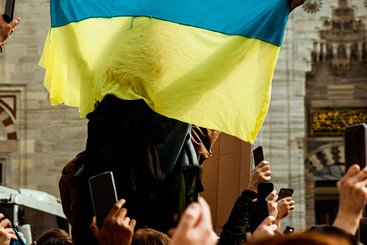On 30 October 2022, Brazil returns to the polls for a highly contested second round of its presidential elections, amidst campaigns marked by an unprecedented spread of false and misleading information. While online mis/disinformation was a feature of past election cycles, the 2022 election has seen an explosion in its use as a campaign strategy, which has been met with new urgency by the judiciary. We examine the possibilities and limits of this judicial response to the heightened use and normalisation of political mis/disinformation.
In Brazil, citizens are using social media more to access information, even as they are increasingly aware of the prevalence of misinformation and disinformation. 47% of citizens are estimated to follow public affairs through social media, and cite Facebook, Twitter and Instagram as credible sources. At the same time, more than three in four people think that fake news is spread ‘frequently’ or ‘very frequently’ through these same channels.
The role of online mis/disinformation in election campaigns attracted greater attention in Brazil in 2018 around Jair Bolsonaro’s use of multi-million-dollar campaigns to bombard individuals with false and inciteful content on platforms like WhatsApp. Following the elections, civil society and the judiciary took steps to prevent misinformation from becoming a decisive factor in future elections, including formal inquiries into the use and funding of mass-messaging disinformation and defamation campaigns through WhatsApp. One Supreme Court inquiry has been investigating online attacks on members of the court, which were allegedly financed by business leaders and disseminated by pro-Bolsonaro networks. Several fact-checking agencies have also been set up, and academics and civil society have invested in research on the surge of far-right extremist groups mobilising online (e.g. Rocha, Solano & Medeiros, 2021; Pinheiro-Machado & Scalco, 2020).
Mis/disinformation as a campaign strategy: a point of no return?
Despite these efforts, mis/disinformation has become even more prominent around the 2022 elections, most clearly with President Bolsonaro’s use of mis/disinformation as a campaign strategy. This has heightened challenges around the integrity of election campaigns, as voters confront a complex blend of fact, conspiracy and fake news.
Social media enable candidates to present different personas, customised to appeal to different audiences on different platforms, and targeting specific emotions and personal beliefs. In what has become referred to in Brazil as the ‘Office of Hate’, Bolsonaro’s government and presidential campaign have launched an operation that supports pro-Bolsonaro blogs and social media accounts that spread misinformation and attack accounts that are critical of the president. Disinformation claims range from raising suspicions about the integrity of voting machines to accusing his rival Lula of satanism. The campaign has also engaged “social influencers” to expand its reach, from Christian influencers to gamers.
Concerns about freedom of expression online have been manipulated to defend the spread of fake news and content that incites violence. Bolsonaro has argued he is protecting free speech and adopting an “anti-censorship” approach, for example, pardoning an allied congressman that the Supreme Court convicted of violent anti-democratic actions. At the same time, Bolsonaro has publicly promoted the persecution of journalists.
Mis/disinformation has spread to Bolsonaro’s opposition. With the support of André Janones, a congressman with high social media engagement, former president Luiz Inácio Lula da Silva’s campaign has utilised decontextualised information and misleading accusations against Bolsonaro, even linking Bolsonaro to cannibalism. Though also flirting with sensationalism, the scale and professionalism of the pro-Lula campaign is dwarfed by Bolsonaro’s use of disinformation.
The limits of the judiciary in regulating political mis/disinformation
Given the heightened risks of mis/disinformation around the elections, the judiciary has stepped in to attempt to combat its spread and influence. The Superior Electoral Court (TSE), the highest structure in Brazil’s electoral justice system, has tasked itself with combatting election-related misinformation. The TSE chair, Alexandre de Moraes, stated that they received 1000% more claims about disinformation in 2022 than in 2018, when Brazil last held general elections.
Their programme aims to promote digital literacy, and identify and repress disinformation, creating a governance structure for a trustworthy, fact-based public sphere within the court. There are 384 registered decisions about fake news (as of 27/10/2022), 52% of which resulted in the removal of the content. A different analysis reveals that 72% of the removed content refers to attacks against Lula’s campaign. The judiciary also monitors some accounts, including daily monitoring of the social network accounts of André Janones and Carlos Bolsonaro, the president’s son, to check for mis/disinformation.
The court has also enacted resolutions relating specifically to the elections. A 2021 alteration to a resolution specifies that candidates must verify information they put forward, and grants opponents the right to correct false or misleading information. It also forbids the spread of false or gravely decontextualised information. The Supreme Court recently upheld a controversial resolution which increases the court's powers to take down information relating to the presidential run-off. The resolution requires that platforms must exclude disinformation within two hours of a judicial decision, reducing to one hour on the eve and day of the elections. It also allows the suspension of accounts in case of repeated violations.
Judicial efforts remain relatively limited compared to the scale of mis/disinformation. Big tech companies continue to allow explicit disinformation related to the presidential elections, as shown in a recent study by Global Witness. The court also faces regulatory challenges around individual privacy when trying to address misinformation spread through encrypted channels, such as WhatsApp and Telegram.
President Bolsonaro has criticised the court, and cast doubt on the integrity of the elections with unproven vote-fraud claims. He has called upon the Armed Forces to ‘oversee’ the elections, which would be outside their constitutional role, and directed accusations against Supreme Court ministers, including filing for the impeachment of its chair. The current vice-president suggested expanding the number of court ministers if Bolsonaro is re-elected. While Bolsonaro has remained ambivalent to this proposition, he did assert that the court “will change the way it acts, and it won’t intervene in our lives”. These accusations feed into wider mistrust in Brazilian society – a recent survey showed that 52% of the population “don’t trust” (37%) or “trust a little” (15%) the Supreme Court. Misinformation feeds off this wider mistrust in political institutions, from the Supreme Court to the traditional media, harming open and inclusive public debate.
Future challenges and ways forward
These elections have been a testing point of the Supreme Court's ability and trustworthiness in controlling misinformation. It remains too soon to judge whether the judiciary’s efforts will lead to longer term successes, or if its enhanced powers to decide on what can and cannot be published represent another point of stress on an already compromised democracy.
Such deep challenges to democracy are not limited to Brazil. In Latin America, two cases from 2022 exemplify the urgency of finding viable mechanisms to stem the influence of mis/disinformation. In Colombia, presidential candidate Rodolfo Hernández, sometimes known as “Colombia’s Trump”, lost to the left-wing candidate Gustavo Petro by a very close margin in an electoral dispute characterized by the spread of fake news. In Chile, in 2020, following major nationwide protests, a national plebiscite was held in which 78% of voters approved the drafting of a new constitution to replace the current Pinochet-era document. However, a second plebiscite in 2022 saw the new constitution be rejected by 62% of voters following a campaign seen by some to have been compromised by mis/disinformation.
Democratic institutions across the world face serious challenges in combatting political mis/disinformation. With political actors increasingly willing to utilize mis/disinformation as a campaign tool, there is a need to not only understand the context-specific nature of mis/disinformation, but also to develop and support different approaches to addressing it. Judicial approaches such as that used in Brazil are one key part of the solution – however, continued challenges around compliance and enforcement point to the need for a broader response. Ultimately, combating disinformation demands global as well as national action, and will require governments, civil society and tech companies all to find ways of responding in nuanced and agile ways to the constantly evolving threats posed to democracies by the spread of mis/disinformation.




